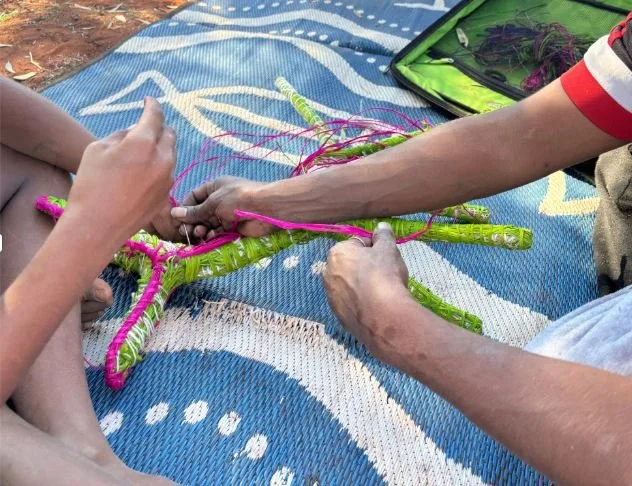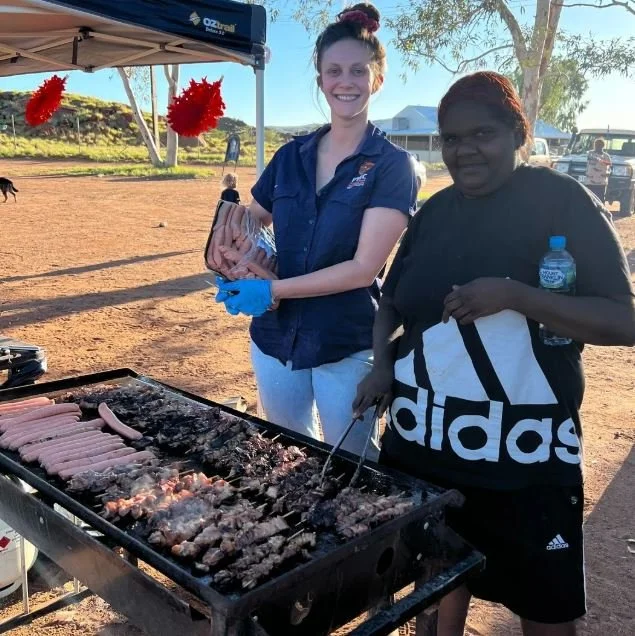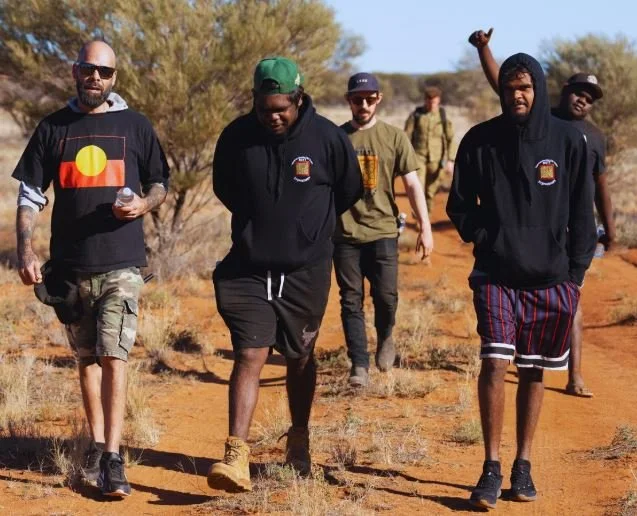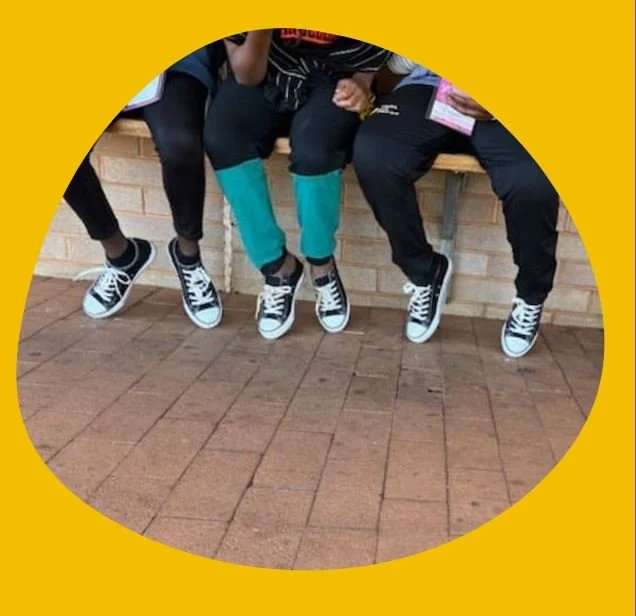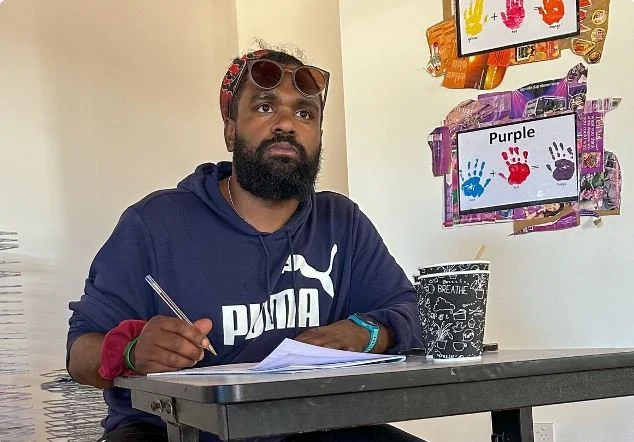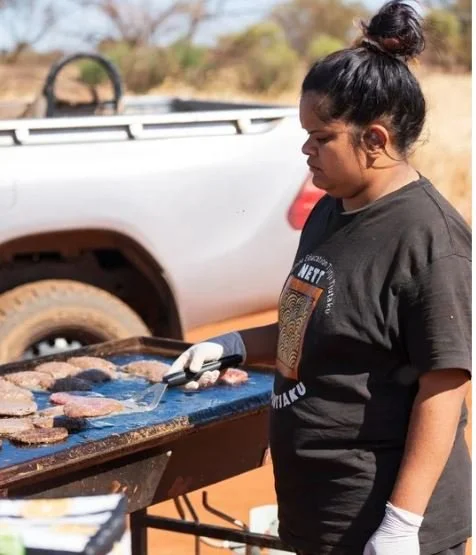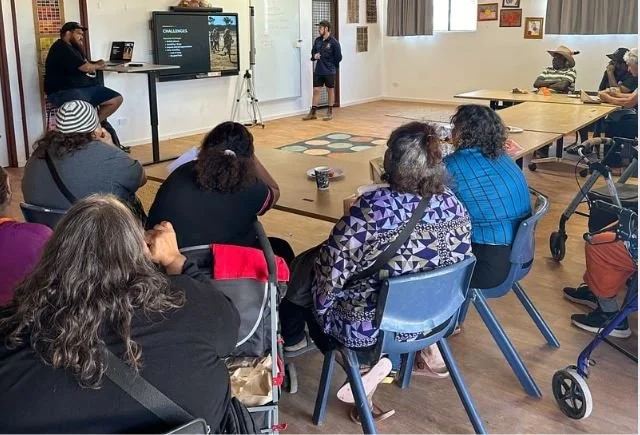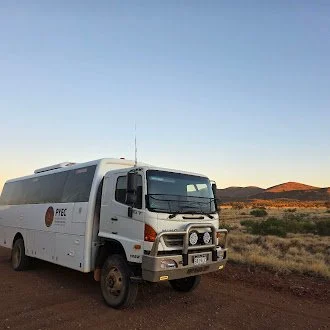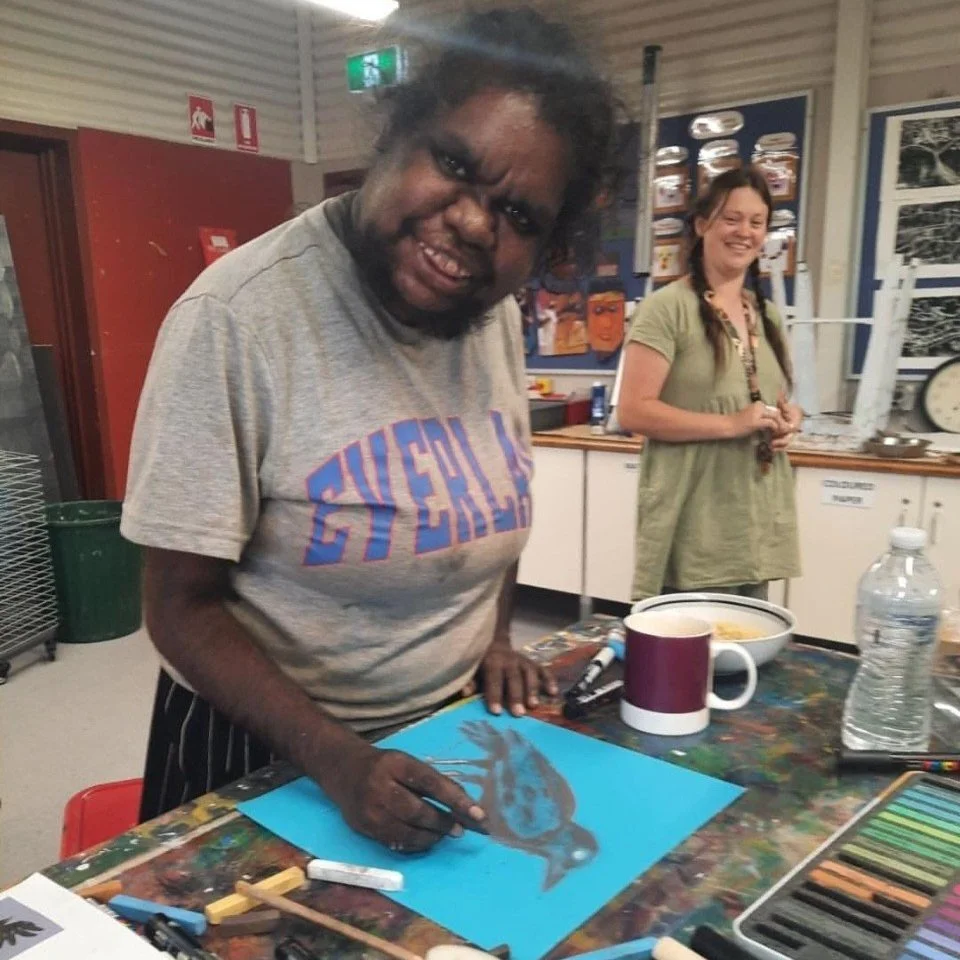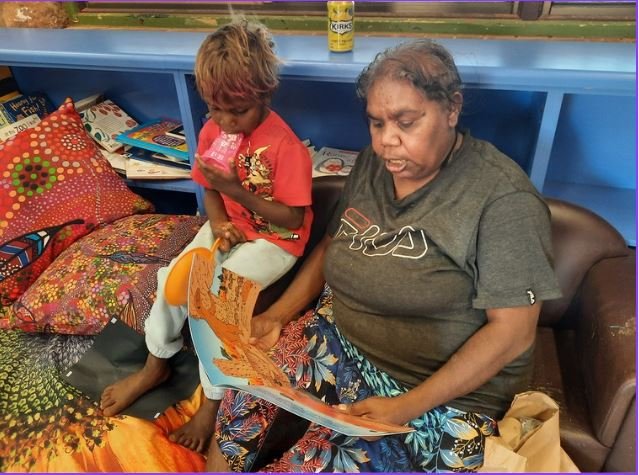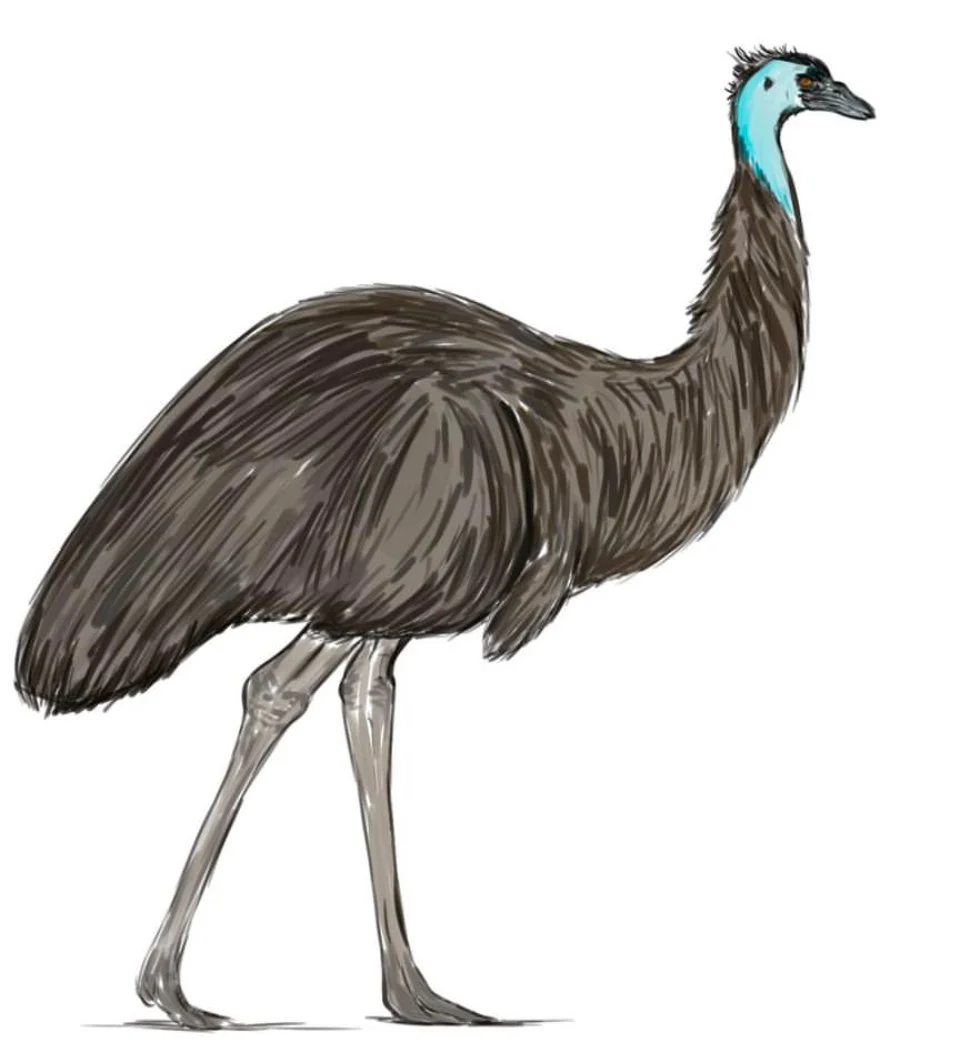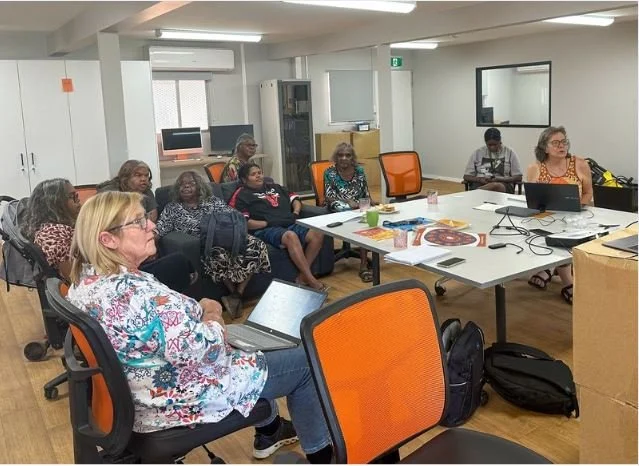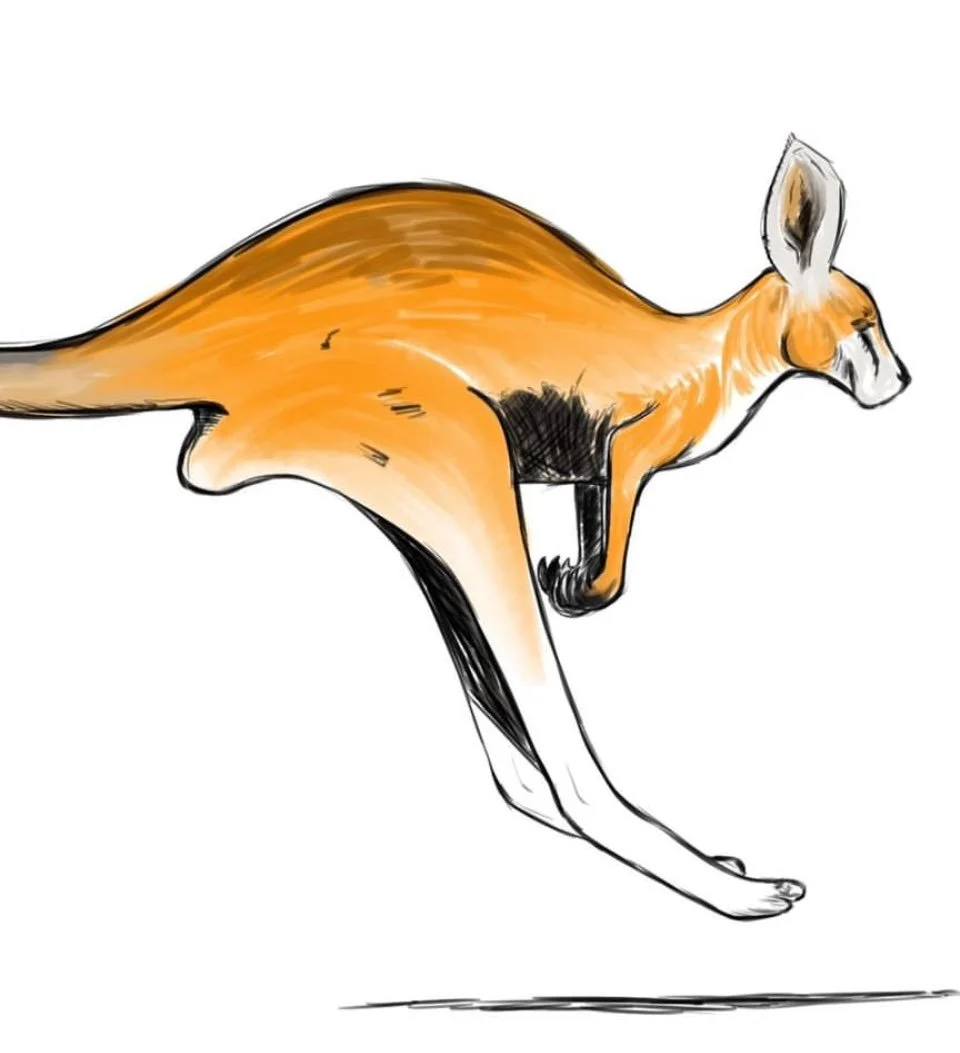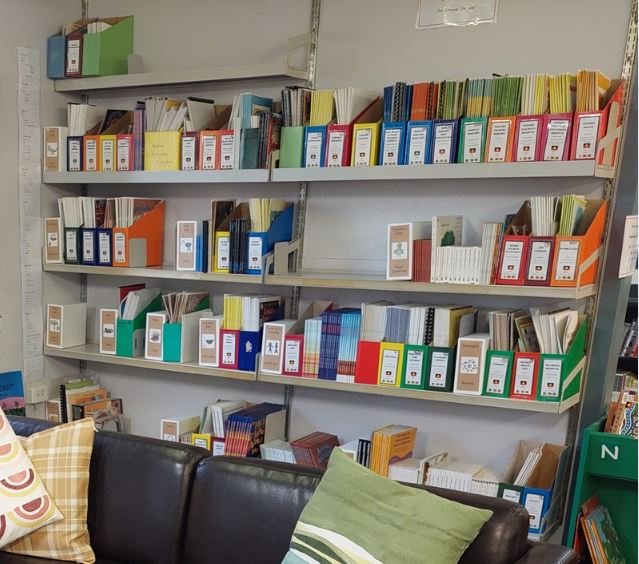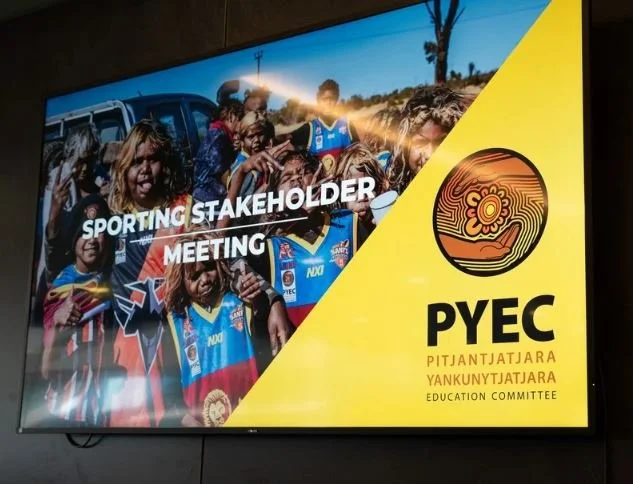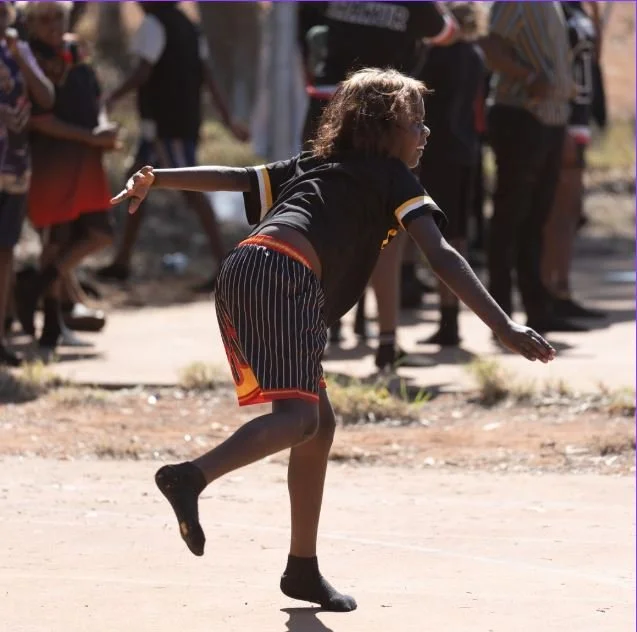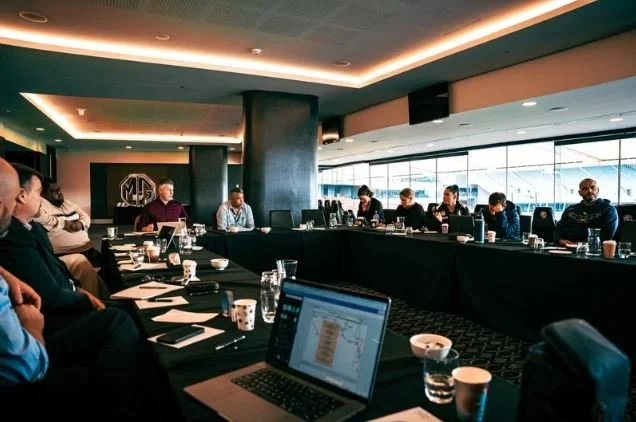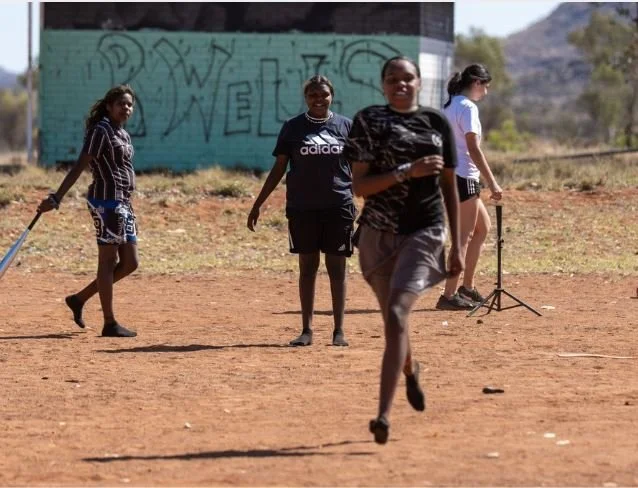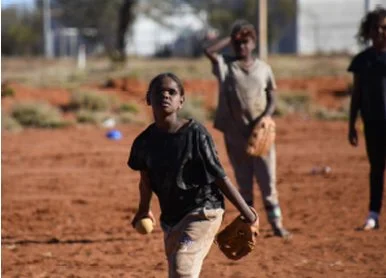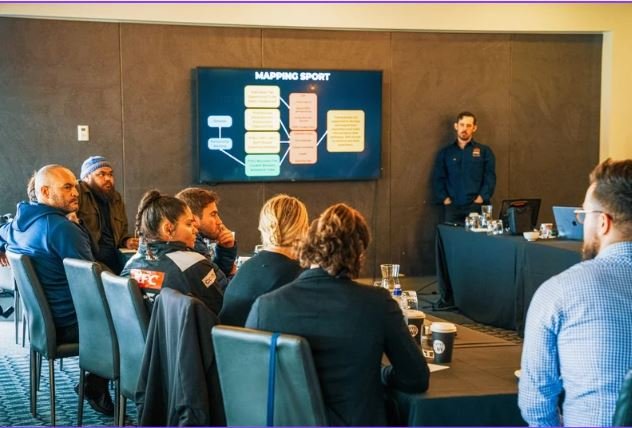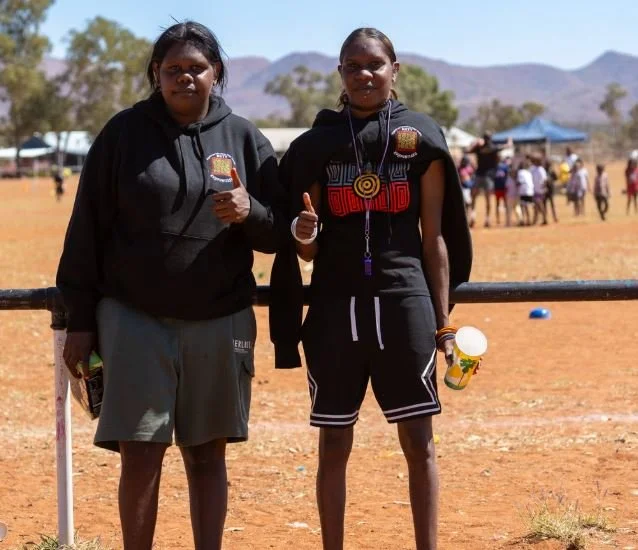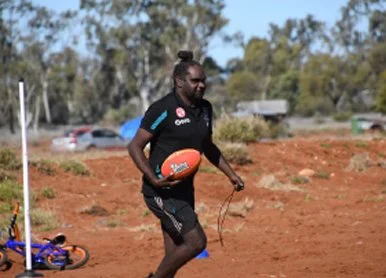WHAT WE DO

NETT
NGANAMPA EDUCATION TJITJI TJUṮAKU KUṈPUNTJAKU
ENGAGING WITH COMMUNITY - AṈANGU EMPOWERED DECISION-MAKING
NETT Program Managers and Engagement Officers are always working together with community to ensure our children are motivated and ready to attend school. Community consultations are an important part of ensuring a strong Aṉangu voice in planning and delivering initiatives that have a direct and sustained impact, and meet the different needs of each community across the APY lands.
The school attendance strategy - Nganampa Education Tjitji Tjuṯaku (NETT) Kunpuṉtjaku is Aṉangu owned and operates across the APY Lands.
We work closely with parents, principals, and other members of the community so that we make sure children are getting the best education. The input from families is very important as we need them to encourage and support their children to attend school.
NETT program Engagement Officers provide practical day to day assistance in each community, in addition to organising activities and events, providing transport and other resources to help children get to school.
PYEC was contracted by NIAA to deliver the Remote School Attendance Strategy for Aṉangu Schools in the APY Lands. PYEC has named its school attendance program “Nganampa Education Tjitji Tjutaku Kuṉpuntjaku.”
ARDU
AṈANGU RESOURCE DEVELOPMENT UNIT
Aṉangu have a long history of creating their own resources in Pitjantjatjara and Yankunytjatjara languages. In the 1970s and 80s, literature production centres operated in a number of communities including Amata, Ernabella, Fregon, Indulkana and Yalata. These were places where Aṉangu could share stories that educated their young people while keeping their languages and knowledge systems alive and healthy.
CREATING TEACHING AND LEARNING RESOURCES IN LANGUAGE
In 2020, Aṉangu expressed a strong desire to re-establish a text production program for their schools, so that their children would have access to high quality first language resources which looked as colourful and professionally made as the English books they were surrounded by. In response, the ARDU was established, initially through funding from NIAA and then through a grant from the South Australian Department for Education.
ARDU partners with Aṉangu working in schools, as well as other experienced and skilled Aṉangu storytellers, authors, illustrators and editors, to create Pitjantjatjara, Yankunytjatjara and Southern Pitjantjatjara resources for use across learning areas. Aṉangu knowledge and perspectives are prioritised, alongside a focus on language integrity and exposure to subject-specific vocabulary which supports the ongoing maintenance of Aṉangu languages.
RECORDINGS AND STORIES
Over time we are collecting recordings that support our book translations and add deeper insight into the stories. Use the media player below to hear the sounds of Aṉangu country - more recordings will be published as they become available.
EXPLORE MORE ARDU TEACHING AND LEARNING RESOURCES HERE
SPORT
and the AJFL
PARTICIPATION AND COLLABORATION
Participation in sport is a motivating reward for students who come to school. PYEC have worked to make this a forum for teaching good sportsmanship, cooperation, team work and personal growth. The program encourages students to engage actively, not just in sports, but in building lasting friendships and developing life skills that extend beyond the field.
Our sporting program is responsible for the after-school sporting activities and Aṉangu Junior Football League (AJFL).
Aṉangu children and young adults love sport and the program has a fundamental role as an incentive for school attendance.
PYEC plays a critical role in providing a framework for the sporting organisations and partnerships that engage in the APY Lands. The aim is to bring everyone together and create a plaform for collaboration, and to ensure that Aṉangu voice is strong in how the programs are run.
PATHWAYS
SCHOOL TO WORK PROGRAM
PYEC’s Indigenous Skills and Employment Program aims to connect Aṉangu to training and jobs by leveraging our community strengths and interests.
We work with local communities to identify existing and emerging engagement and employment opportunities, and to identify barriers to skills development and employment.
ISEP works in partnership with government, education providers, organisations and employers, but training and workforce planning is community based and Aṉangu share in all of the decision making.
PYEC
JUNIOR RANGER PROGRAM
The program reinforces PYEC’s existing commitment to supporting education in Aṉangu Schools. While activities have a strong cultural and vocational (Ranger work) focus and predominantly occur on Country, the program’s curriculum resources link SACE Units and VET Units (Cert 2 Conservation and Land Management). This not only facilitates progression in SACE but equips students with relevant skills, knowledges and educational attainment to enable them to transition to employment as Rangers working in Land Management on the APY lands.
In this sense the Junior Ranger Program provides Aṉangu Schools across the APY Lands with more resources to assist students to become life-ready, provide young Aṉangu with more options after school and to equip participants with the skills to become strong and confident.
PYEC works with key stakeholders such Land Management, Traditional Owners (Nguraritja) and schools to deliver camps and regular Learning on Country activities. Importantly these activities are led by Aṉangu Rangers, Elders and other significant Nguraritja. The model centres around the importance of Aṉangu culture, aiming to strengthen intergenerational relationships and cultural transfer as well as providing students with strong role models and skills that can lead to meaningful employment.
PYEC
AJFL - 2024 SEASON
PROGRAM SPOTLIGHT




